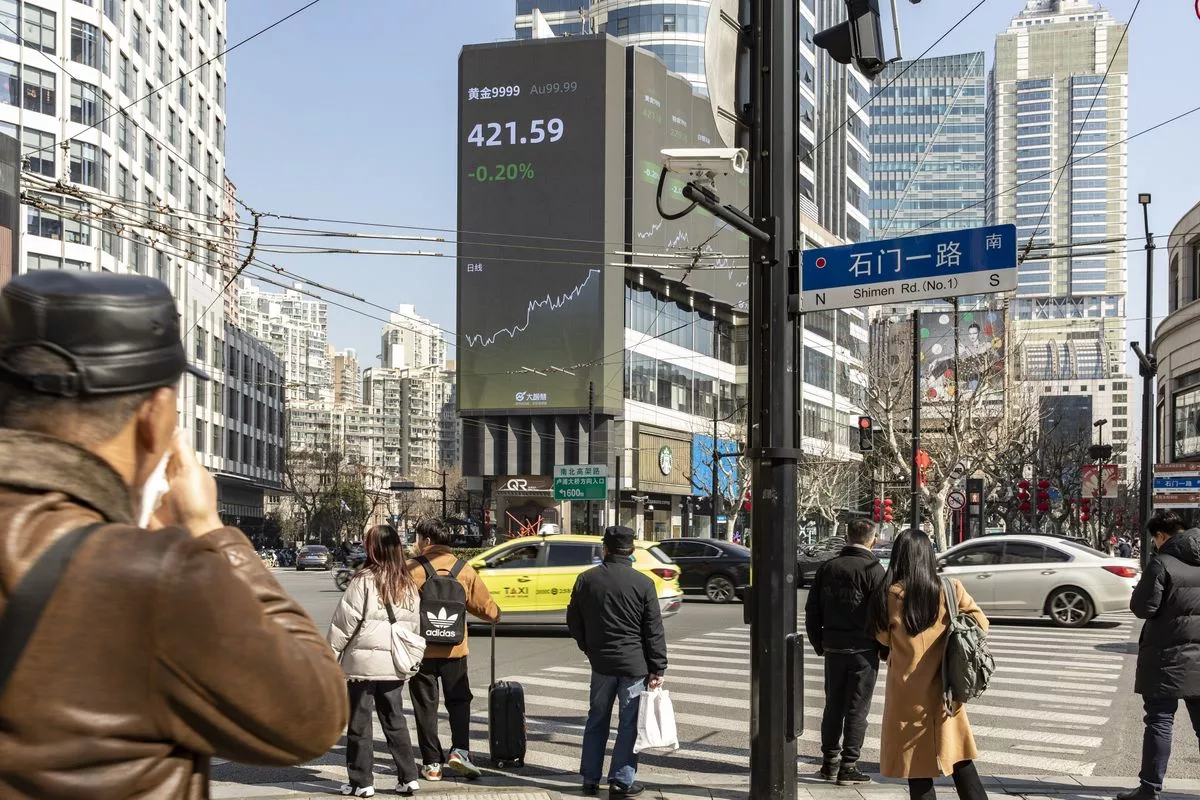Chinese stocks were on track for their worst week in more than a month as investors searched for new drivers to prolong a rise that has outperformed the rest of the world since the country’s reopening.
As of 2:35 p.m. on Friday, the CSI 300 Index, a measure of mainland shares, was down 0.9%, putting an end to this year’s streak of weekly advances. The Hang Seng China Enterprises Index, which monitors Chinese stocks traded in Hong Kong, dropped, setting the gauge up for its largest five-day loss since the reopening euphoria began at the end of October.
The reversal indicates that attitude is becoming more cautious after the preceding three months of explosive increases were fueled by excitement on China’s Covid Zero withdrawal. Although consumer spending appeared to be picking up over the Lunar New Year holidays, the economy has not yet recovered its footing, with weakness in the housing market serving as a major hindrance.
Retail investors are becoming less confident and expecting only slow, incremental growth, according to Liu Dejun, managing director of Beijing Guanghua Private Fund Management Co. “There is a growing split in opinions on the rate of recovery,” he added. The majority of institutional investors have increased their exposure and continue to be optimistic.
Even though officials announced that the border between Hong Kong and mainland China will fully reopen for the first time in three years, the market’s response was muted. According to John Lee, the mayor of the city, daily quotas and testing requirements would be eliminated, and all boundary checks will reopen starting the following week.
The companies that had posted the biggest gains during this rebound, such as Country Garden Services Holdings Co. and Baidu Inc., were some of the worst performers on the Hang Seng China gauge on Friday. After increasing holdings at a record monthly pace, foreign investors were prepared to sell mainland shares on Friday for the first time since January 3. Hong Kong shares worth a total of HK$17.9 billion ($2.3 billion) have been sold by Mainland investors this week, positioning them for the most since 2021
However, rather than the beginning of a slump, China bulls are likely to view the selloff as a temporary correction. The nation’s strong economic outlook, according to analysts at Citigroup Inc., gives the reopening trade more room to grow, while those at Jefferies Financial Group Inc. predict an upgrade in earnings estimates.
“I don’t think the panic selling of 2022 will happen again. Given the robust rally, it is wise to exercise caution, according to Qi Wang, chief executive of MegaTrust Investment in Hong Kong.

